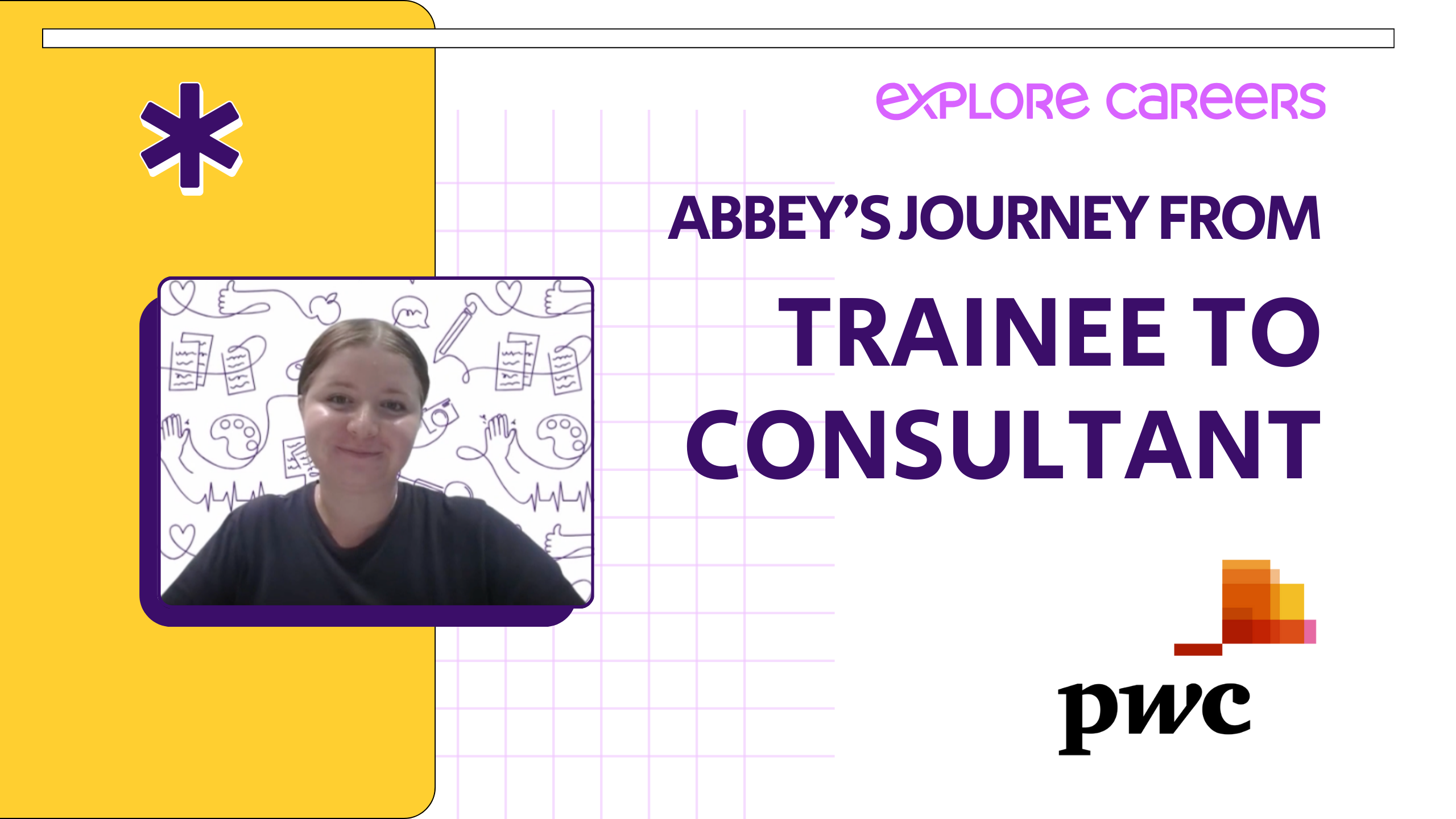Back to employers
Professional Services
Ever wondered who helps businesses run smoothly behind the scenes? Or who crunches the numbers, provides legal services, creates brilliant strategies, and helps make big decisions happen? Welcome to the world of professional services!
This industry is full of exciting opportunities for those of us who love problem-solving, teamwork, and making an impact in almost every corner of the working world. From accountants and lawyers to consultants, analysts, marketers, and more, professional services cover a massive range of career paths that are always in high demand.
Whether you’re keen on finance, business, law, technology, or helping companies grow, there’s something for everyone in the professional services industry. Best of all, it’s a space where you can build real-world skills, learn fast, and grow into high-paying, respected roles.
Breaking it Down: Professional Services Meaning
Wondering what professional services are? Good question! The term “professional services” might sound a little vague at first, but it simply refers to jobs where trained professionals offer expert services and advice, not physical goods, to help businesses and clients solve specific problems.
Imagine you’re a business owner and need help sorting your taxes, creating a brand, handling a legal issue, or planning a new IT system. Who do you turn to? Professional service providers! These are highly skilled workers, often with university qualifications, who get paid for their smarts, ideas, and solutions.

So, What Are Professional Services Careers?
Still not crystal clear on what the professional services industry is all about? Let’s break it down a little more. Professional services are typically:
- Knowledge-based: You use specialised training or expertise to solve complex problems.
- Client-focused: You work with external clients or internal teams to deliver results.
- Non-physical: You’re not building things or producing goods; you’re providing services like consulting, advising, strategising, or planning.
Demystifying ‘The Big Four’
If you’ve ever found yourself looking into the professional services industry before, you’ll likely be pretty familiar with a set of companies known as ‘The Big Four.’ For those who don’t know (and don’t worry, it’s totally normal for anyone outside of the industry to be unfamiliar with the term), these organisations are internationally regarded for the high level of quality expertise they bring to the professional services and consultancy industry. Members of ‘The Big Four’ include:
- Deloitte Australia
- Ernst & Young (EY)
- PricewaterhouseCoopers (PwC)
- KPMG
These organisations act as consultancy firms and assist other businesses, government departments, and organisations across all kinds of other industries. Some of the core professional services they offer include financial services, audit and tax services, legal services, administration and human resources, project management, and data research and analytics.
These organisations are also widely acknowledged for the quality graduate and early career programs they’ve developed, providing young job seekers, like yourself, with exceptional experience in the professional services industry and a strong stepping stone into their future careers!
Securing an entry-level role with these organisations can be competitive, but they’re great starting points to launch a sustainable career in the professional services industry that lasts a lifetime.
What You Could Do
With such a massive range of careers under one umbrella, the professional services industry is one of the most diverse and exciting spaces to explore. Whether you’re a numbers whiz, a people person, a deep thinker, or a creative problem-solver, there’s a spot for you in this fast-paced and future-focused field.
What makes the professional services industry so appealing is the sheer variety of roles and industries it touches. You could work in legal services, audit and tax services, IT, design, business, government, or healthcare, all because professional services roles exist everywhere.
And the best part? You don’t need to have it all figured out right now. Many people start in one area of the professional services industry and later move into others as they discover new interests, complete extra training, or gain on-the-job experience. It’s an industry where flexibility, learning, and progression are part of the journey.
So, what could your future in professional services look like? Let’s explore some of the most popular and promising careers in this dynamic industry.

Consultant
Average Management Consultant Salary: $90,000 – $110,000
Consultants step in when a business needs fresh thinking. They help organisations solve problems, improve performance, manage change, and make big decisions. This is one of the most fast-paced areas in the professional services industry, and perfect if you enjoy big-picture thinking and working with a variety of clients and industries.
Project Manager
Average Project Manager Salary: $135,000 – $155,000
Project managers are responsible for a team of analysts, directing ‘who does what’ and ensuring timely, successful delivery on all kinds of different projects. They primarily manage everyone involved in the project, resolve issues and liaise with the client to update them on developments and potential steps. Their aim is to build a strong relationship with the client while reporting on progress and presenting findings. In short, they’re a super important part of the professional services industry!
Data Analyst
Average Data Analyst Salary: $90,000 – $110,000
If you’re into numbers and patterns, data analytics might just be your jam. Data analysts collect and interpret large sets of information to help businesses make informed decisions. The best part? All industries need data analysts, so you could work in finance, healthcare, sport, or even government! It’s one of the fastest-growing roles in the professional services space, especially as tech and data continue to shape every industry.
Legal Assistant
Average Legal Assistant Salary: $70,000 – $90,000
Professionals in this field provide legal services that help people and organisations navigate complex law-related matters. From helping out with contracts and managing disputes to giving business-saving legal advice, this career is about problem-solving and protecting rights. It’s a key part of professional services, especially in business, property, family, and corporate law.
Accountant
Average Accountant Salary: $75,000 – $90,000
Accountants are the go-to experts when it comes to managing money, preparing financial reports, and ensuring people or businesses are sticking to the rules (hello, tax time!). They help companies make smart financial decisions, stay compliant, and even spot ways to grow. Whether you’re working in a small business or a major global firm, accountants play a vital role in the professional services industry.
Chief Executive Officer (CEO)
Average CEO Salary: $190,000 – $210,000
The CEO is the head of the executive team and manages the day-to-day operations of the organisation, including its people, budgets, direction and resources! Essentially, they develop and implement strategies approved by the organisation’s board and ensure that processes meet the strategic and cultural needs of the organisation. As key players in the professional services industry, they need to have a lot of experience and expertise in a core area, as well as generalist business and strategy knowledge.
No matter where your interests lie, the professional services industry is bound to have the perfect career path for you. From crunching numbers and solving legal puzzles to driving digital innovation, these careers are diverse, in-demand, and full of potential. The best part? Many roles are flexible, future-focused, and give you the chance to make a real impact right from the start. So, if you’re curious, driven, and ready to explore your options, professional services might just be your perfect fit!
Insights into the Professional Services Industry
So, you’re considering a career in the professional services industry, but you’re wondering what’s really going on behind the job titles and office doors? Before you dive into any career path, it helps to understand what the industry looks like from a broader perspective. Who’s hiring? What’s the growth like? Are there good opportunities for graduates? And how diverse is the workforce?
The great news is that professional services isn’t just thriving, it’s evolving, and there are heaps of opportunities for people just like you to jump in and make your mark. So, if you’re thinking about a future in law, accounting, business consulting, IT, marketing, HR (or something that hasn’t even been invented yet), these insights will give you a solid understanding of where the industry is headed and how you can be part of it.

Industry Growth
If you want to join one of Australia’s strongest industries (and one that’s only projected to keep growing), professional services is a fantastic choice! Not only did the industry’s market size reach a whopping $324.5bn, but it also boasts 1 million employees and 280,000 businesses, making it a true powerhouse in Australia’s economic landscape.
While the performance of the professional services industry is closely linked to broader economic conditions (meaning that if the world’s overall economic state is good, so is that of the industry), the potential for a downturn shouldn’t feel too concerning. After all, the industry is filled with some of the most brilliant business minds on earth! Moreover, due to the professional services industry’s annual growth rate of 5.32%, it’s expected to reach a market volume of $348bn by 2029. If those aren’t comforting statistics for aspiring professional service providers, we don’t know what are!
Graduate Employment and Hiring Trends
Concerned about landing a job in the professional services industry? Trust us, there’s no need to worry too much. In fact, the Australian professional services industry was ranked #4 in employment for 2025, with 1,077,725 people working in the industry!
Looking for a little more reassurance? Well, according to the latest Australian Graduate Outcomes Survey, those who studied business and management have extremely high employment rates. 84.5% of graduates were in full-time employment, while their overall employment rate was 89.9%, and the overall labour participation rate was an impressive 96.0!
Plus, many large professional services organisations hire young talent early and invest in training and development. That means you could land a spot straight out of uni and be on your way to building a serious career before you know it!
Gender Split
The professional services industry in Australia shows a more balanced gender representation than many other sectors, but there’s still work to be done, especially in terms of pay equity and leadership opportunities. According to Australia’s 2023–24 Gender Equality Scorecard, the broader professional, scientific and technical services sector is relatively gender-balanced in terms of headcount. However, there remain pay gaps and disparities in senior roles
The good news is that many major professional services firms, including the “Big Four” accounting and consulting companies, have launched initiatives to close the gender gap in the professional services industry. For example, Ernst & Young’s Sydney office aims for 50% female graduates, 50% female senior managers, and 40% female partners by 2027. These actions reflect an industry-wide effort to build more diverse, equitable workplaces, but also underscore that reaching true gender balance is still a work in progress.
Average Salary
One of the best things about working in the professional services industry is that many roles come with solid earning potential, especially as you gain experience and climb the career ladder.
Starting salaries can vary depending on your chosen path, with graduate positions generally offering steady entry-level pay. What’s more, as you build experience, qualifications, and expertise, salaries in the professional services industry can increase significantly. Here are a few examples of average full-time earnings:
- Average Management Consultant Salary: $90,000 – $110,000
- Average Project Manager Salary: $135,000 – $155,000
- Average Data Analyst Salary: $90,000 – $110,000
- Average Legal Assistant Salary: $70,000 – $90,000
- Average Accountant Salary: $75,000 – $90,000
- Average CEO Salary: $190,000 – $210,000
- Average Research Analyst Salary: $95,000 – $115,000
While these figures give a solid idea of what professionals are earning in the professional services industry, it’s important to remember that salaries can vary quite a bit, especially when you’re just starting out. If you’re entering a graduate or junior role, expect your earnings to be on the lower end to begin with. But don’t stress! Many roles in this industry offer fast growth and strong long-term earning potential.
Your salary in a professional services career can also be influenced by a few key factors, including:
- The specific area or discipline you work in.
- Your job title and level of seniority.
- How much experience you bring to the role.
- The size and type of organisation you work for.
- Your location (metro roles often pay more than rural or regional ones).
So, while pay is just one part of the picture, it’s clear that professional services jobs come with plenty of opportunity to grow, both professionally and financially!

Qualifications and Entry Pathways
Thinking of diving into the professional services industry? Great choice! One of the best things about this sector is how many different entry points it offers. Whether you’re heading straight to university, considering a TAFE course, or looking to work your way up through on-the-job experience, there’s a pathway that can get you there.
Because professional services careers cover so many different roles, from law and finance to HR, IT, and consulting, there’s no one-size-fits-all qualification. Some careers require formal university degrees, while others can be kick-started through diplomas, short courses, or even traineeships. This section will help you explore the main study routes that lead into the industry, what you’ll learn, how long it might take, and some alternative ways to get started without a degree.
 Degrees for Professional Services Careers
Degrees for Professional Services Careers
Most roles in the professional services industry begin with a tertiary qualification; for some professional roles, a bachelor’s degree can set you up well with the foundation of theory and knowledge to help you build a successful career in the industry, while for others, completing a master’s degree might be your best bet (but you can cross that bridge when you come to it).
Here are some of the most popular bachelor’s degrees for careers in the professional services industry and what they typically involve:
Bachelor of Business and Management
Time to Complete: 3 Years
A Bachelor of Business and Management blends the big-picture thinking of business with the practical skills of management. You’ll learn how organisations are structured, how teams work best together, and how to lead people and projects effectively. It’s a top pick if you’re looking at careers in operations, project coordination, or business development.
Bachelor of Economics
Time to Complete: 3 Years
Studying a Bachelor of Economics is all about understanding how the world works: from supply and demand to global trade and financial markets. This degree dives into data, trends, and decision-making at every level. If you love numbers, logic, and figuring out why things cost what they do, this one’s for you. It’s a strong foundation for roles in policy, finance, and consultancy.
Bachelor of Accounting and Finance Management
Time to Complete: 3 Years
Want to master money and help businesses grow? A Bachelor of Finance Management is all about financial reporting, budgeting, and investment. You’ll gain hands-on knowledge of accounting principles, risk analysis, and managing financial performance. Perfect for future accountants, financial analysts, and business advisors.
Bachelor of BusinessAdministration
Time to Complete: 3 Years
This all-rounder Bachelor of Business Administration degree covers a wide spectrum of business topics: marketing, strategy, operations, and entrepreneurship. It’s ideal for students who want a strong generalist background and the flexibility to explore different parts of the professional services industry. Graduates often move into leadership and consulting roles.
Bachelor of Business Law
Time to Complete: 5 Years
Combining core business knowledge with legal studies, a Bachelor of Business and Law degree explores the legal framework that governs the business world. You’ll study contracts, workplace laws, consumer protection, and more. It’s a great choice if you’re interested in corporate compliance, business ethics, or legal advisory roles that don’t necessarily require becoming a lawyer.
Bachelor of Professional Communications
Time to Complete: 3 Years
This Bachelor of Professional Communications degree focuses on communication strategy across media, business, and digital platforms. You’ll learn how to craft clear, effective messages and manage communication in corporate and public settings. It’s perfect for students keen on PR, marketing, branding, or internal communications within professional organisations.
 Best Places to Study
Best Places to Study
Choosing where to study might feel like a huge, overwhelming decision, but it doesn’t have to be! When you’ve done your research and know which universities or training providers offer the best programs for your future professional services career, things get a lot clearer.
Where you end up studying will depend on your interests, goals, location, and what kind of learning environment suits you best. Luckily, Australia is packed with world-class institutions offering top-tier programs in business, law, accounting, HR, IT, communications, and more.
Some of the top places to kick off your professional services journey include:
Tip: Always check if your course is accredited with the relevant industry body (like CPA Australia, ACS, or the Law Council) for better employability.

Alternative Professional Services Pathways
Not keen on going to uni straight away (or ever)? No problem. There are still plenty of ways to kick-start a professional services career. Here are a few options to consider if a bachelor’s degree just doesn’t sound like your thing:
Alternatively, you could also opt for a traineeship for a hands-on way to get involved in the professional services industry! They’re a fantastic way to get your foot in the door of the professional services industry, especially if you’re keen to earn while you learn.
Unlike university, traineeships are hands-on, paid work opportunities where you’ll complete a nationally recognised qualification (like a Certificate III or IV) while gaining real-world experience in areas such as business administration, HR, IT support, or finance. They’re often shorter than full degrees and can lead straight into full-time employment. Best of all, they’re perfect for students who prefer practical learning or want to start their careers sooner rather than later.
Skills For Aspiring Professional Services Workers
The professional services industry isn’t just about having the right qualifications; it’s also about developing the skills that make you stand out. Whether you’re working with clients, solving complex problems, managing teams, or presenting big ideas, having the right mix of technical and soft skills is key.
This industry is fast-moving and always evolving, so being adaptable, tech-savvy, and people-focused can take you a long way. Below are some of the top skills that will help you thrive in professional services jobs and give you an edge in whatever career path you choose.
Communication Skills
Whether you’re pitching to a client, writing a report, or working in a team, clear communication is essential. Professionals in the professional services industry need to explain ideas simply, listen actively, and adapt their style for different audiences. After all, strong communication helps build trust, avoid misunderstandings, and deliver great results!
Critical Thinking
Professional services careers are all about solving problems, often under pressure. Critical thinking helps you break down complex issues, evaluate information, and make smart decisions. It’s especially important in roles like consulting, auditing, law, and project management.
Teamwork & Collaboration
Very few roles in the professional services industry are solo gigs. You’ll often work as part of cross-functional teams or with external clients, so knowing how to collaborate, support others, and share ideas is a must. Great teams lead to better outcomes and stronger workplace vibes.
Time Management
Juggling deadlines, clients, and multiple projects at once? Welcome to the world of professional services! Being organised and managing your time well helps you stay productive, meet expectations, and reduce stress. Trust us, it’s a game-changer in busy work environments.
Adaptability
Industries like tech, finance, and communications are always changing, and so are the skills they require. Being adaptable means staying open to new tools, learning quickly, and responding well to feedback or change. It’s one of the most valued traits in the modern workforce!
Digital Literacy
From accounting software to CRMs (Customer Relationship Management) and data analysis tools, almost every role in professional services involves digital platforms. Knowing how to use the latest tools (and pick up new ones quickly) will keep you competitive and ready for whatever’s next.
Analytical Skills
In professional services, decisions are often based on data. Whether you’re reading financial reports, interpreting market research, or tracking KPIs (key performance indicators), being able to analyse and make sense of information is crucial.

Where to Learn More
Not quite done exploring? You can find out more about different pathways through professional bodies and organisations advocating for careers in the professional services sector. Some good places to start include:
And many more!
Each state will also have several professional organisations that can help you learn more about the industry, network, and develop your career.

Discover Abbey’s Journey From Trainee to Consultant at PwC!
Looking for a company that helps you make friends, expand your skills and land an awesome consulting role right out of uni? Look no further!
Explore

How to Ace Your First Day at Work
Discover how you can make the most of your first day at a new job and alleviate new job anxiety by checking out our top tips!
Explore




 Degrees for Professional Services Careers
Degrees for Professional Services Careers Best Places to Study
Best Places to Study










